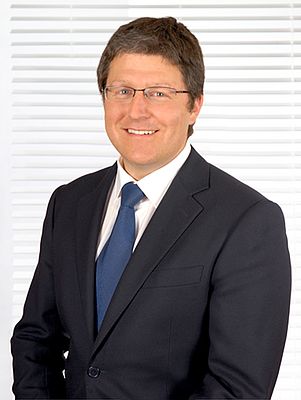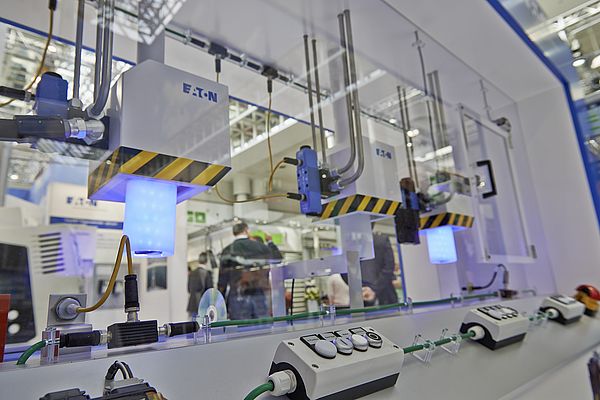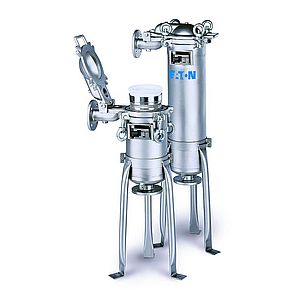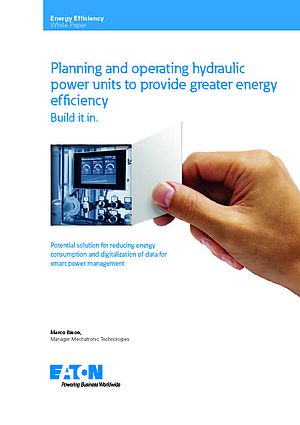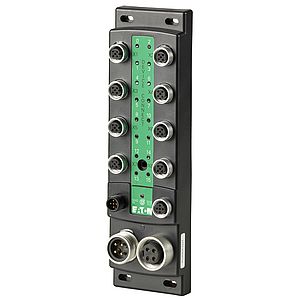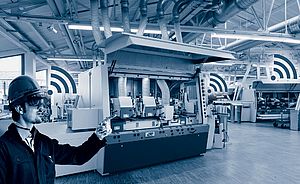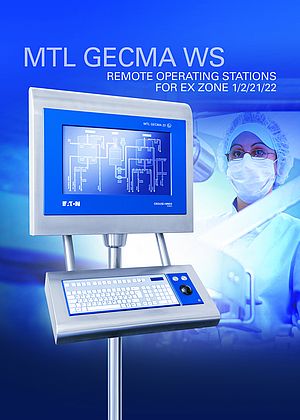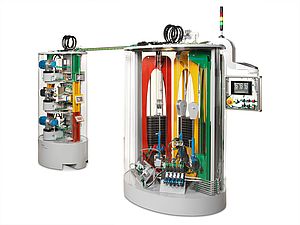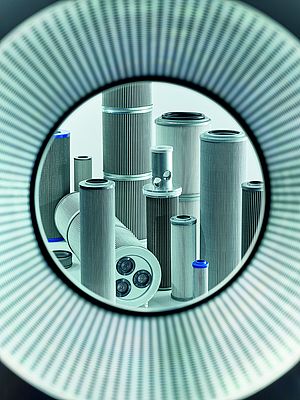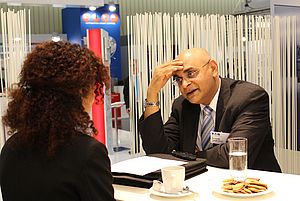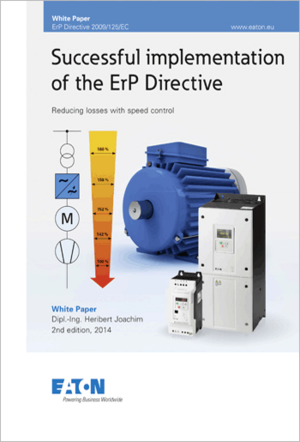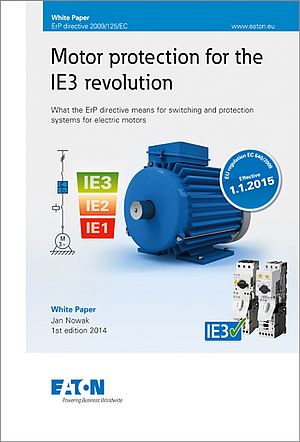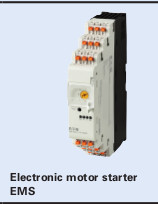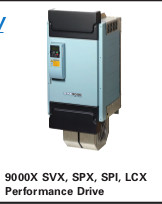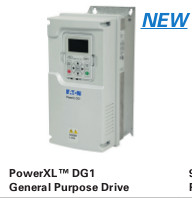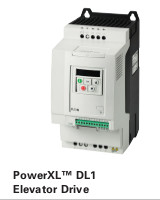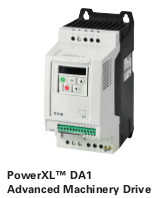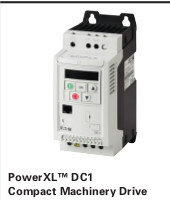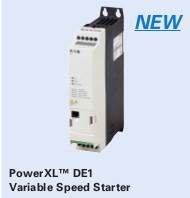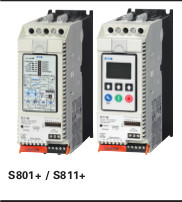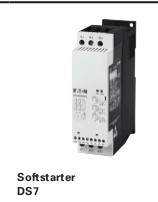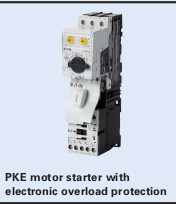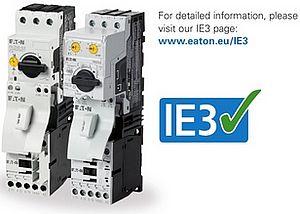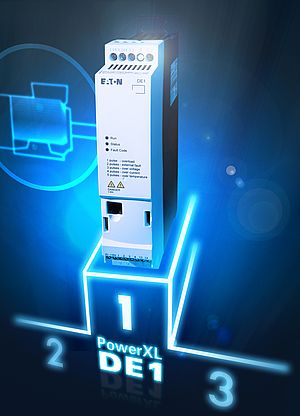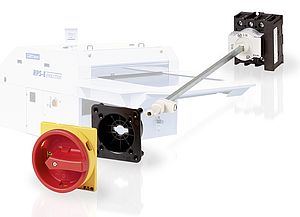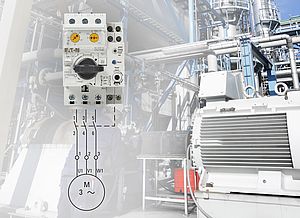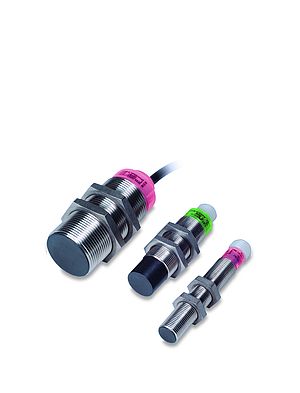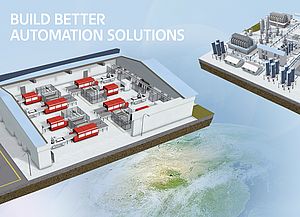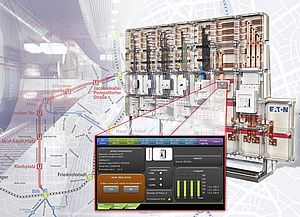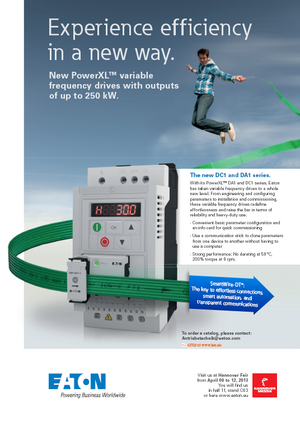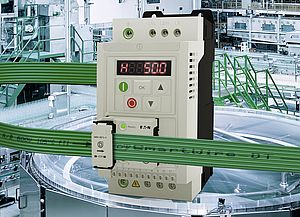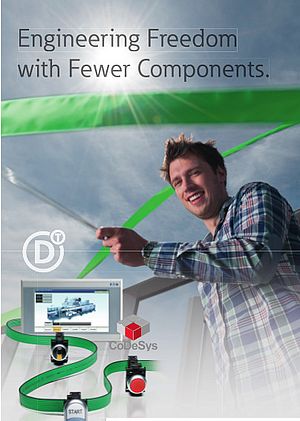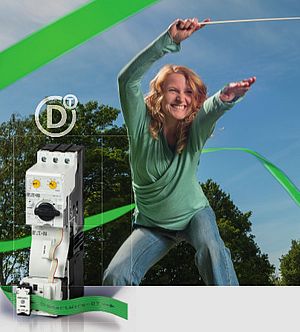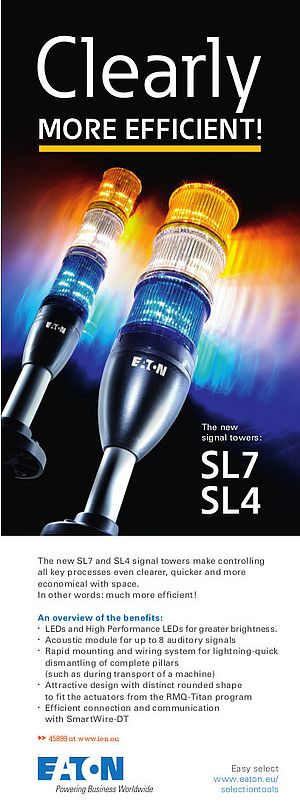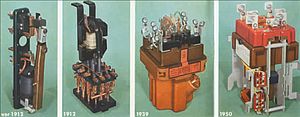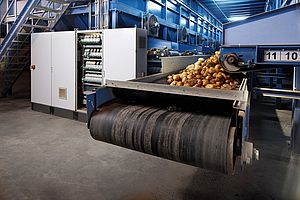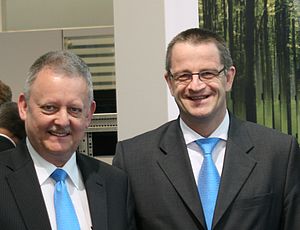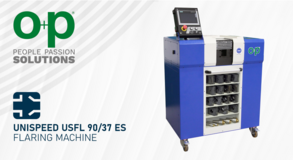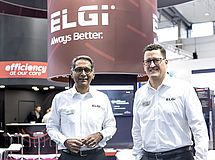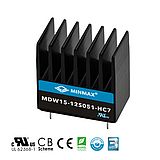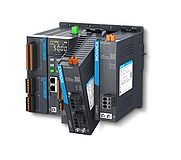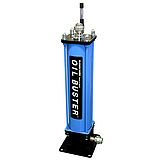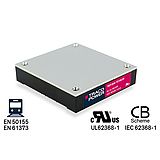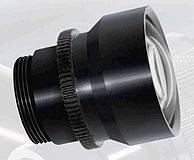In November 2012, Eaton announced the acquisition of the electrical equipment supplier Cooper Industries. With this major acquisition, the company has significantly expanded its product portfolio and became able to target new markets. During Hannover Messe 2013, IEN Europe got a chance to talk with Craig McDonnell, Eaton's Vice President Industrial Automation Business, about new opportunities and challenges.
IEN: Mr. McDonnell, already at the SPS/IPC/Drives show last November you introduced several new products, especially within your drives and motion portfolio. Is this trend continued this year?
McDonnell: One of the biggest changes in our industrial offering recently is that we've expanded our offering of best-in-class components. We've traditionally had a strong presence in the standard controls, pushbuttons, etc. With the EuP directive setting EU-wide rules for improving the environmental performance of energy-related products, we believe drives will become an even more important part of the overall portfolio. As a consequence, Eaton has launched a whole new range of standard and advanced variable speed drives. Additionally, the launch of our new range of electronic motor starters provides users motor starting in a smaller format as traditional electromechanical contactors. This allows interchangeability with a traditional contactor. These two product range introductions represent very significant expansions to the overall portfolio.
To complement our components, we are now offering a suite of Lean Automation solutions, intended to lower the time to market and offer other savings for machine builders and end users. These solutions, built from our SmartWire-DT technology platform, eliminate significant waste during the design, manufacture and operation of low complexity automation systems.
If you look at control panels over the last 20 to 30 years, they typically consist of a programmable logic controller (PLC) with input/output nodes (I/O) driving large bundles of cables connected to standard devices. Any use of communications required a fieldbus connected to an intelligent device, offered at a much higher price.
In contrast, Eaton's Lean Solution concept aims at analyzing work processes in machine and system building in order to eliminate waste and fully leverage the optimization potential for our customers. Waste could also include unnecessary control wires, I/O and other components. The user is now able to connect standard components using SmartWire-DT while achieving much of the same connectivity and interoperability that you would typically expect from a normal fieldbus. You see these lean solutions demonstrated wherever you see the green SmartWire-DT cable.
IEN: Perhaps this also fits within the concept of Integrated Industry or Industry 4.0: Taking standard components and connecting them more intelligently...
McDonnell: Exactly. The whole lean philosophy is very central to our industrial offering, and it's becoming central to our power distribution offering as well. Here you see applications where we use SmartWire-DT to connect our miniature circuit breakers, moulded case breakers and switchgear assemblies. The user has a great opportunity to implement a single integrated architecture. We have collaborated with Phoenix Contact, Wöhner, and Hilscher. So rather than developing SmartWire-DT into a fully open protocol - we have developed a group of experts to offer the user a complete solution at a lower cost.
IEN: In late November last year, Eaton announced the acquisition of Cooper Industries. What does this major step in your company's history mean for you as an industrial supplier, which products have been added to your portfolio, and are you targeting new markets with this acquisition?
McDonnell: The Cooper acquisition certainly is a transformational acquisition. When you look at the former Cooper business, it has strength in two sectors that Eaton had not yet penetrated - power generation and consumer wiring. Considering the entire power chain, we have a much more complete view now.
There are also areas where both companies have been successful. For example, in the circuit protection business. Eaton is a leading circuit breaker expert and one of the largest circuit breaker manufacturers in the world. Cooper, on the other hand, held the expertise in fuse technology. Bringing the two together means we are now the only manufacturer that offers both technologies - giving customers the ultimate choice.
IEN: Will the name Cooper remain?
McDonnell: There is a team of experts working on the integration program now, and one of the areas which will be addressed is brand. With the Moeller acquisition several years ago we learned a lot about how to take a 100-year-old brand and leverage its strength to grow Eaton. It's always a very sensitive topic for employees and customers alike, so we plan to proceed with a lot of care.
Cooper has an established range of products and solutions. It is in our best interest to ensure that customers continue to relate to the technology and innovation that has come from the Cooper portfolio.
IEN: Does this open up new opportunities in the process area as well?
McDonnell: Eaton has been powerfully covering the process area in North America, with very high market shares in the medium voltage and gear businesses. In other areas where our market share was smaller, the presence of the Crouse-Hinds business brings substantial mass. Eaton now has the expertise needed to go out to engineering, procurement and construction (EPC) contractors and work in hazardous areas.
IEN: Could you please tell us a bit more about the Cooper company structure. Which product segments is Cooper comprised of? And are there any product overlaps with Eaton?
McDonnell: Cooper evolved and grew from many acquisitions and, at the time of its acquisition by Eaton, was composed of seven divisions structured around product families. Those included B-Line, a manufacturer of support systems and enclosures for engineered facility subsystems; Bussmann, committed to the development, manufacturing and marketing of circuit protection products; and Crouse-Hinds, a worldwide manufacturer of electrical and instrumentation products for harsh and hazardous industrial applications. Furthermore, we have Cooper Lighting, Cooper Power Systems, Cooper Safety and Cooper Wiring Devices businesses. Eaton and Cooper products complement each other very well to serve common markets with little or no overlap.
Because of the breadth and depth of the product portfolio, the amount of consultant specification activity that needs to take place is significant. Both Cooper and Eaton have called on the same consulting firms for specifications in order to comply with the demands of those markets, providing a great amount of synergy with the business structure we are currently using.
IEN: Have you gotten any feedback from your customers regarding the acquisition?
McDonnell: What we hear from our customers, especially those involved in major projects, is that they want to get more value from fewer suppliers that truly understand their business needs. Offering the complementary Eaton and Cooper portfolios, we have essentially doubled the amount of products that we could bring to those major projects. This is of great value to our customers, because they can now work with the entire Eaton organization to get a lot more of what is needed to supply their projects.
IEN: Mr. McDonnell, thank you very much for the interview.


